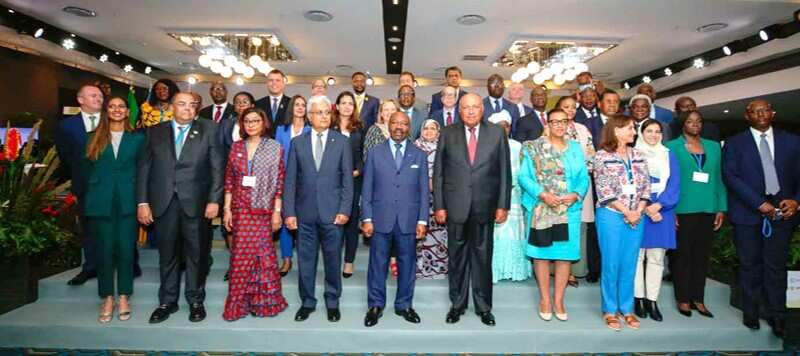From August 29 to September 2, 2022, Gabon hosted the African Climate Week. This is a global event, which brought together more than 2300 people, representatives of governments, international organizations, the private sector and NGOs from over 60 countries around the world. It is organized by UN Climate in partnership with several global and regional actors, such as UNDP (United Nations Development Programme), UNEP (United Nations Environment Programme), the World Bank Group, the African Union, the African Development Bank, mainly.
Africa Climate Week is a platform for building resilience against climate change risks, transitioning to a low-carbon economy and forging partnerships to address the growing challenges of climate change.
A climate injustice.
With only 4% of greenhouse gas emissions, Africa is still experiencing the greatest effect of climate change. Africa (especially south of the Sahara) is not very resilient to climate change because of its high dependence on agricultural activities, its demographic pressure and its low level of development. The African continent is experiencing temperature increases, flooding, reduced rainfall and other consequences of climate change.
African climatic events.
According to the UNDP "The event is designed to create momentum before the pre-COP27 in the Democratic Republic of Congo (DRC) and the COP27 in Egypt. The COP27 (United Nations Climate Conference) will be held in November 2022 in Egypt.
In his speech, the Gabonese President, Ali Bongo Ondimba, assured that environmental issues have always been at the heart of his thoughts. That is why, since 2009, Gabon has, through his voice, taken an active part in climate negotiations. Despite the fact that "the sovereign interests of each country have prevailed over the general interest", he decided that "his country would adopt concrete and immediate measures to effectively fight against climate change". According to Ali Bongo, the results of his reforms have laid the foundations for a low-carbon economy.
Gabon, with a population of less than 10 million, is located in the heart of the African rainforest, called "the second lung of the earth", after the Amazon. In 2021, Gabon was awarded for its contribution to the absorption of CO2 in the world thanks to its programs of preservation of its forest which covers 90% of its territory.

